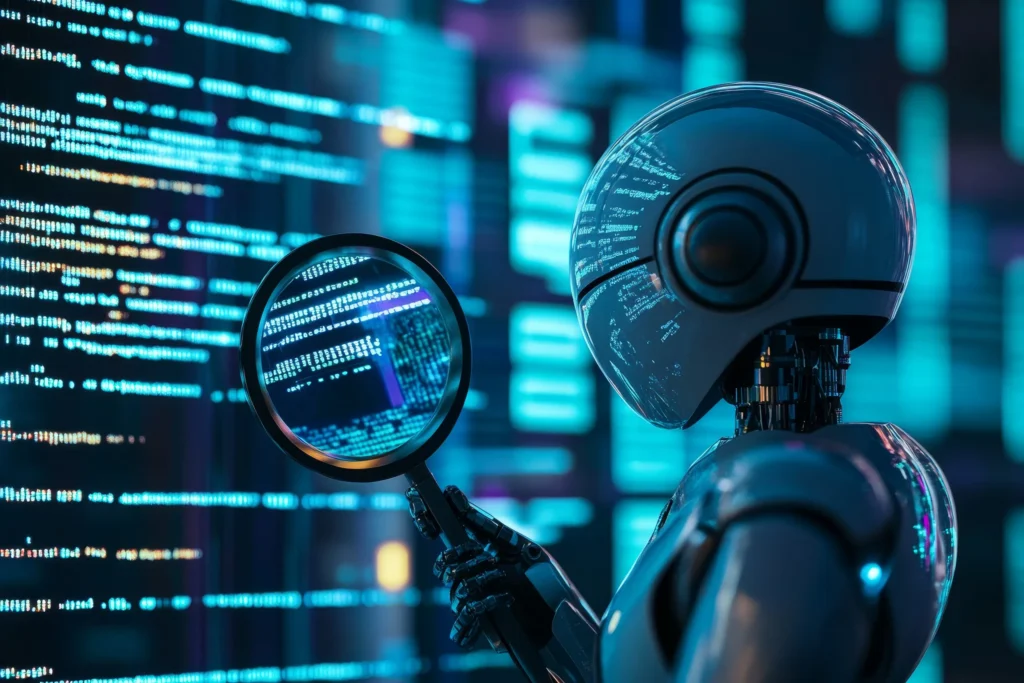The AI Advantage: Speed and Precision
One of the most significant benefits of AI in cybersecurity is its ability to analyse vast amounts of data at unprecedented speeds. Traditional security systems often struggle to keep up with the sheer volume of data generated every second. AI, however, excels in processing this data quickly and accurately, identifying patterns and anomalies that could indicate a security threat.
For example, AI-powered systems can detect unusual login attempts or data transfers that deviate from a user’s typical behaviour. By continuously learning and adapting, these systems become increasingly effective at predicting and preventing potential breaches.
Real-Time Threat Detection and Response
Gone are the days when cybersecurity measures were reactive. Today, AI enables real-time threat detection and response, significantly reducing the time between the identification of a threat and its mitigation. This proactive approach is crucial in minimising damage and preventing data loss.
Consider the case of a financial institution facing a sophisticated phishing attack. An AI-driven security system can instantly recognise the phishing attempt, alert the relevant personnel, and initiate countermeasures to block the malicious activity. This immediate response can thwart attacks before they have a chance to cause significant harm.
Predictive Analytics: Foreseeing Cyber Threats
One of the most exciting applications of AI in cybersecurity is predictive analytics. By analysing historical data and identifying trends, AI can forecast potential future threats. This foresight allows organisations to strengthen their defences in anticipation of specific types of attacks.
For instance, during major events like the Olympics or a general election, the risk of cyberattacks increases. AI can predict these spikes in activity and help organisations bolster their security measures accordingly, ensuring they are better prepared to handle any surge in threats.
Case Studies: AI in Action
To truly understand the impact of AI on cybersecurity, let’s look at some real-world examples:
- Darktrace: This AI company uses machine learning to detect and respond to cyber threats in real time. By modelling the behaviour of every device, user, and network within an organisation, Darktrace’s AI can identify even the subtlest signs of compromise, providing a dynamic and adaptive defence system.
- IBM’s Watson for Cyber Security: IBM leverages its Watson AI to assist cybersecurity analysts by sifting through massive amounts of unstructured data. Watson’s ability to understand natural language enables it to provide insights and recommendations that significantly enhance an analyst’s decision-making process.
- Cylance: Utilising AI and machine learning, Cylance focuses on preventing attacks before they execute. Their approach involves predictive analysis to identify and block threats at the endpoint, ensuring malware and other malicious entities are neutralised before they can cause damage.
The Future of AI in Cybersecurity
The integration of AI in cybersecurity is still in its early stages, but the future looks promising. As AI technology continues to evolve, we can expect even more sophisticated and effective security solutions. This will not only enhance protection but also reduce the burden on human cybersecurity professionals, allowing them to focus on more strategic tasks.
However, it’s essential to recognise that AI is not a silver bullet. Cybercriminals are also leveraging AI to develop more advanced attacks. Therefore, staying ahead in the cybersecurity arms race will require ongoing innovation and collaboration between AI developers and cybersecurity experts.
Conclusion
AI is revolutionising cybersecurity, offering unprecedented levels of protection through speed, precision, and predictive capabilities. As cyber threats become increasingly sophisticated, the role of AI in safeguarding our digital world will only grow more critical. By embracing AI, organisations can stay one step ahead of cybercriminals, ensuring their data and systems remain secure in an ever-evolving digital landscape. See how AI has impacted technology in this article: The Impact of Ai on Technology in The Last Year and Future Benefits.
At OJ Solutions, we understand the critical importance of cybersecurity in today’s digital landscape. Our bespoke approach means we don’t just offer generic solutions; we come to your site, learn about your unique operations, and tailor our AI-driven cybersecurity strategies to meet your specific needs. Ready to fortify your digital defences? Contact us today to schedule a consultation and see how our personalised approach can safeguard your business.



